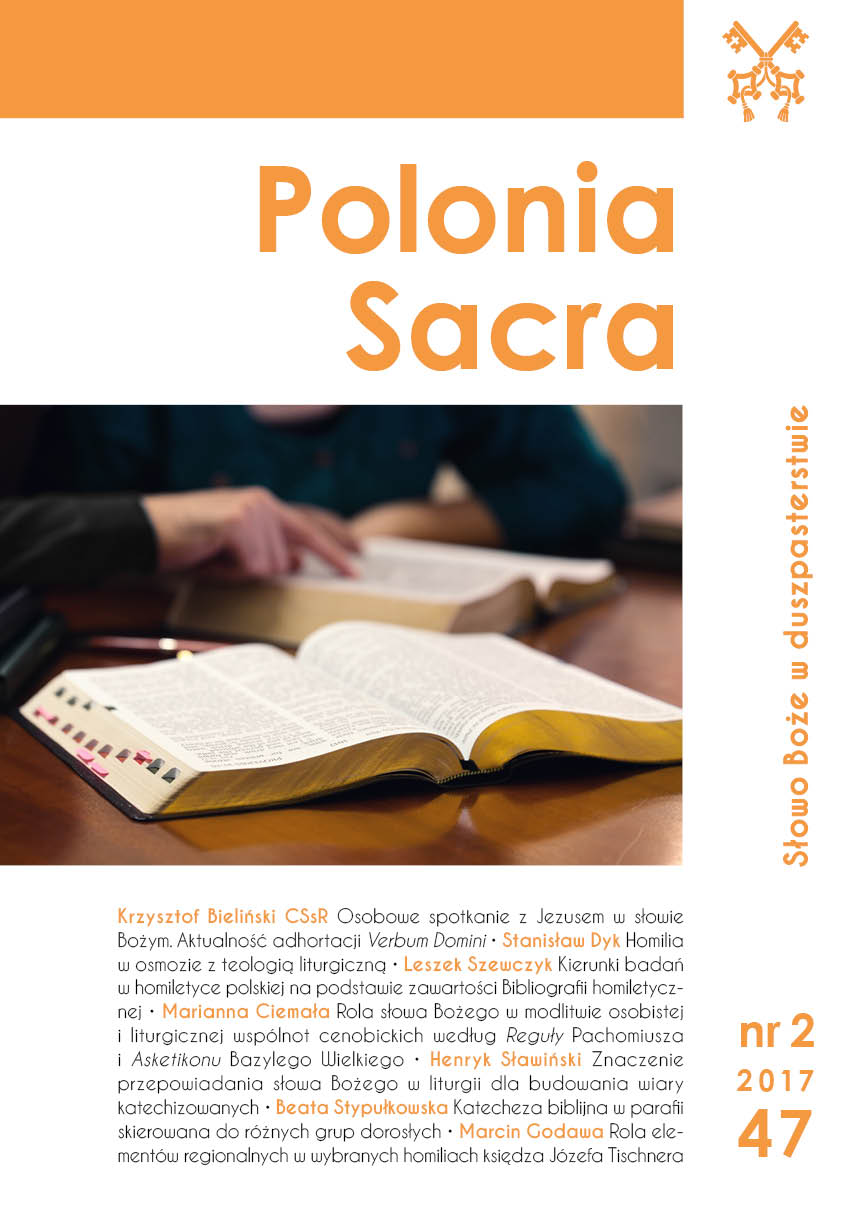Rola słowa Bożego w modlitwie osobistej i liturgicznej wspólnot cenobickich według „Reguły” Pachomiusza i „Asketikonu” Bazylego Wielkiego
The Role of the Word of God in the Personal and Liturgical Prayer of Cenobitics Communities’s According to the Rule of Pachomius and the Asketikon of Basil the Great
Author(s): Marianna CiemałaSubject(s): Christian Theology and Religion, History of Church(es), Theology and Religion, Pastoral Theology
Published by: Wydawnictwo Naukowe Uniwersytetu Papieskiego Jana Pawła II w Krakowie
Keywords: koinônia; liturgy; meditation; prayer; psalms; word of God; community
Summary/Abstract: Numerous studies of ancient monastic rules indicate that community monasticism is rooted in the Bible. The Word of God has played an essential role in the life of cenobites: it was constituting a practical rule of their behavior and it was forming their spirituality. Daily contact with the Scriptures through the prayer was a foundation of monastic koinonia, as the source texts evidence. The Article shows the form of the presence of the word of God in the community prayer (of Pachomius and Basil) and their role in the formation of monks as well as in the development of Koinonia. The Rule of Pachomius and the Asketikon of Basil explains the indications of the teaching of prayer. An important element in the formation was the memorizing the books of Scripture. This practice allowed the brothers to involve actively in a community prayer and prepared them to a constant prayer (meditation), consisting of speaking (aloud or quietly) memorized words of Scripture, or reading passages from the Bible codes and exploring their inner content. In this way the memorized, recited and considered words of Scripture were for cenobites first or even the only rule and the spiritual food – necessary to live accordingly to the will of God, and strengthening the unity among brothers.
Journal: Polonia Sacra
- Issue Year: 21/2017
- Issue No: 2
- Page Range: 63-77
- Page Count: 15
- Language: Polish

